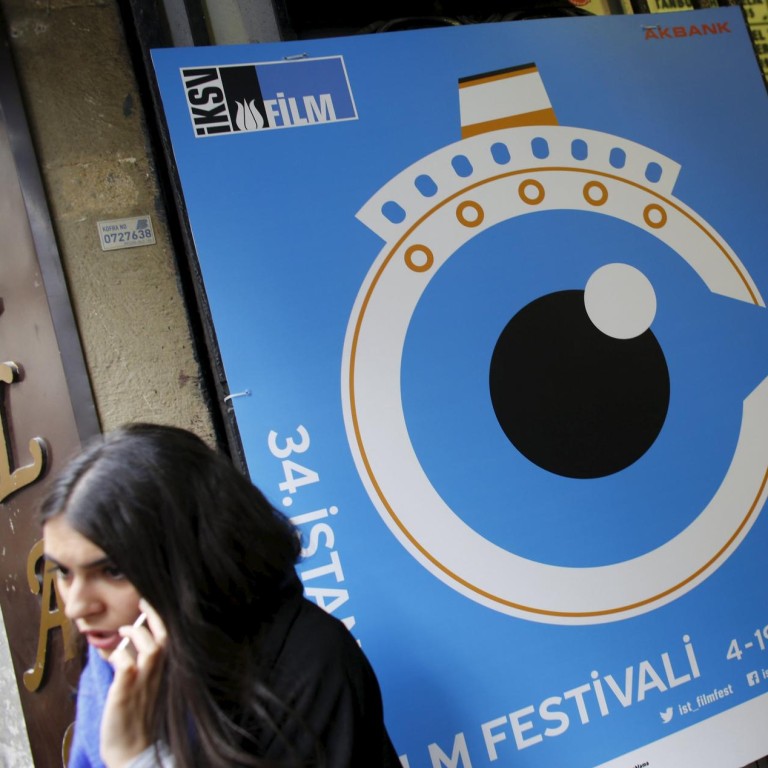
Directors boycott Istanbul Film Festival
In a year when Turkey's film industry is winning plaudits abroad, it's also battling censorship at home, prompting dozens of the nation's most prominent directors to boycott its main festival.
More than 100 filmmakers, including the most recent winner of Cannes' Palme d'Or, Nuri Bilge Ceylan, signed a letter this month alleging censorship at the Istanbul Film Festival, the country's foremost showcase for film which ended on April 19. The action came after programmers cancelled the screening of , or "North", a locally made documentary that looks at the lives of Kurdish militants engaged in armed struggle against the Turkish state.
The protest comes even as filmmakers receive record support from the government, which says it aims to increase the value of film and television exports to US$2 billion by 2023, the centenary of the founding of the Turkish Republic. Last year, 31 per cent of the 108 locally produced films received budgets from the Ministry of Culture, including , Ceylan's three-hour, Chekhov-inspired epic that won top prize from the Cannes jury.
Such support makes the censorship a puzzling step back for the government, says Cem Doruk, 35, a producer who had two films in the festival before he too removed them from competition in protest. "Given the prestige the Turkish industry now has worldwide, it's embarrassing that they'd risk that so a few hundred cinephiles can't see this film," Doruk says. "Before the ruling party came to power, there wasn't anything like this much support for film in Turkey. An industry that used to sustain perhaps five independent films a year can now sustain 50, and that's partly down to their support."
Conflicts with ethnic Kurds have kept Turkey's southeast in varying levels of military conflict since the early 1980s, and the subject was largely taboo until recent years in cinema as well as in the media. Restrictions have been gradually lifted as Turkey's government started talks with Abdullah Ocalan, the imprisoned leader of the Kurdistan Workers' Party, or PKK, to end fighting that's left about 40,000 people dead. The PKK is considered a terrorist group by Turkey, the European Union and the US.
According to its directors, " tells the story of how the PKK, a group that built its struggle mostly on national identity, turned to become a women's movement". They say the documentary "challenges the audience to develop a different point of view as it sheds light on this mysterious world".
The ministry warned the festival hours before it was due to show that the film didn't have the necessary certification, prompting it to cancel the screening and those of other films without documentation, the festival said in a statement.
The government doesn't typically require such documents before commercial release, and other films shown didn't have to produce them, the protesting filmmakers allege, saying they would retract their films in solidarity.
The warning shows there are still "two topics the government gets jumpy about", Doruk says. "That's the Gezi Park protests and the Kurdish issue."
The Gezi demonstrations started as a protest over the uprooting of trees near Istanbul's central square in 2013 and rolled out country-wide, sustained by a groundswell of broader dissatisfaction with the government and a harsh police crackdown. Efforts to censor a documentary about the protests sparked a similar reaction from participants at last year's Antalya film festival.
A Ministry of Culture website shows 332 feature films have been given financial assistance in the past decade, helping to spark a revival in Turkey's film industry after two decades in abeyance.
Last year, Ceylan won two prizes at Cannes, making him one of Turkish cinema's most decorated directors. And newcomer Kaan Mujdeci picked up the special jury prize in Venice.
"It's clear this act was motivated by the film's content," says Ayse Cetinbas, producer of .
The Ministry of Culture did not respond to a request for comment.

